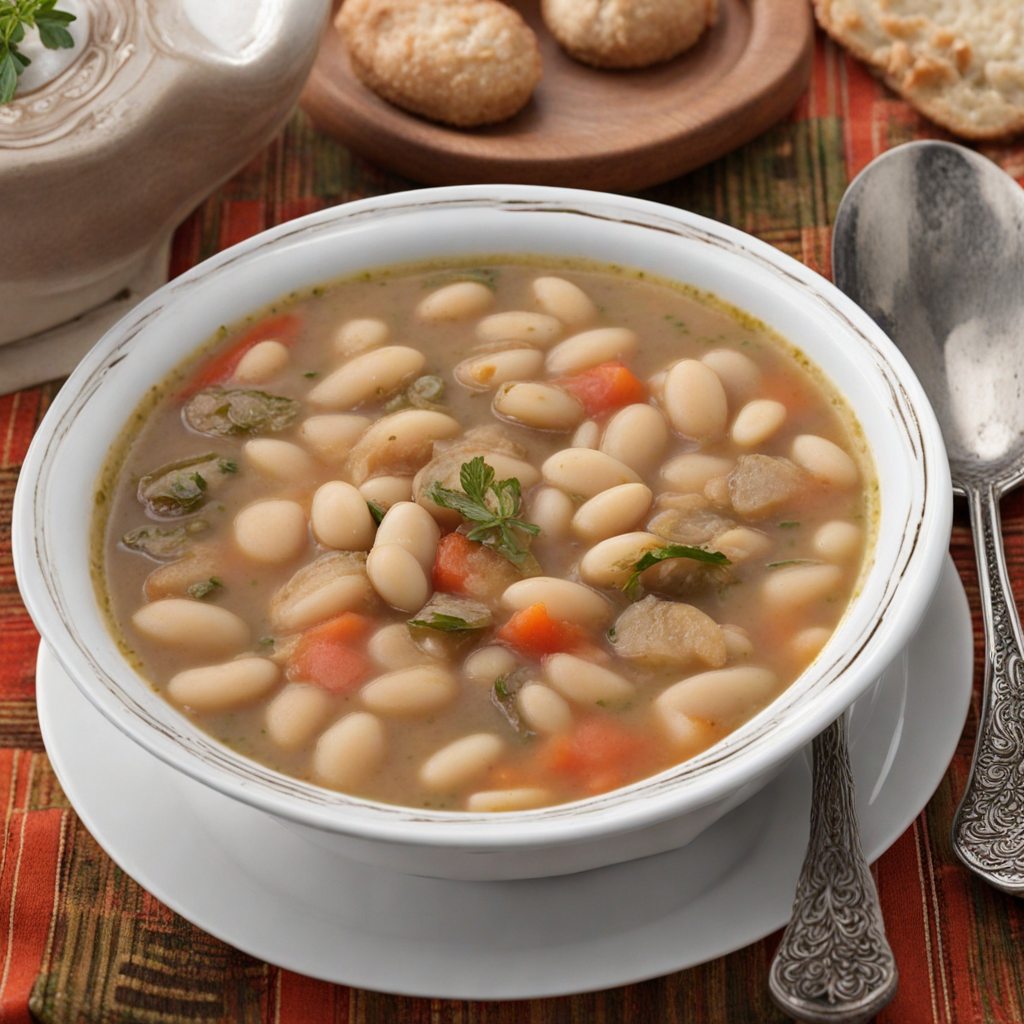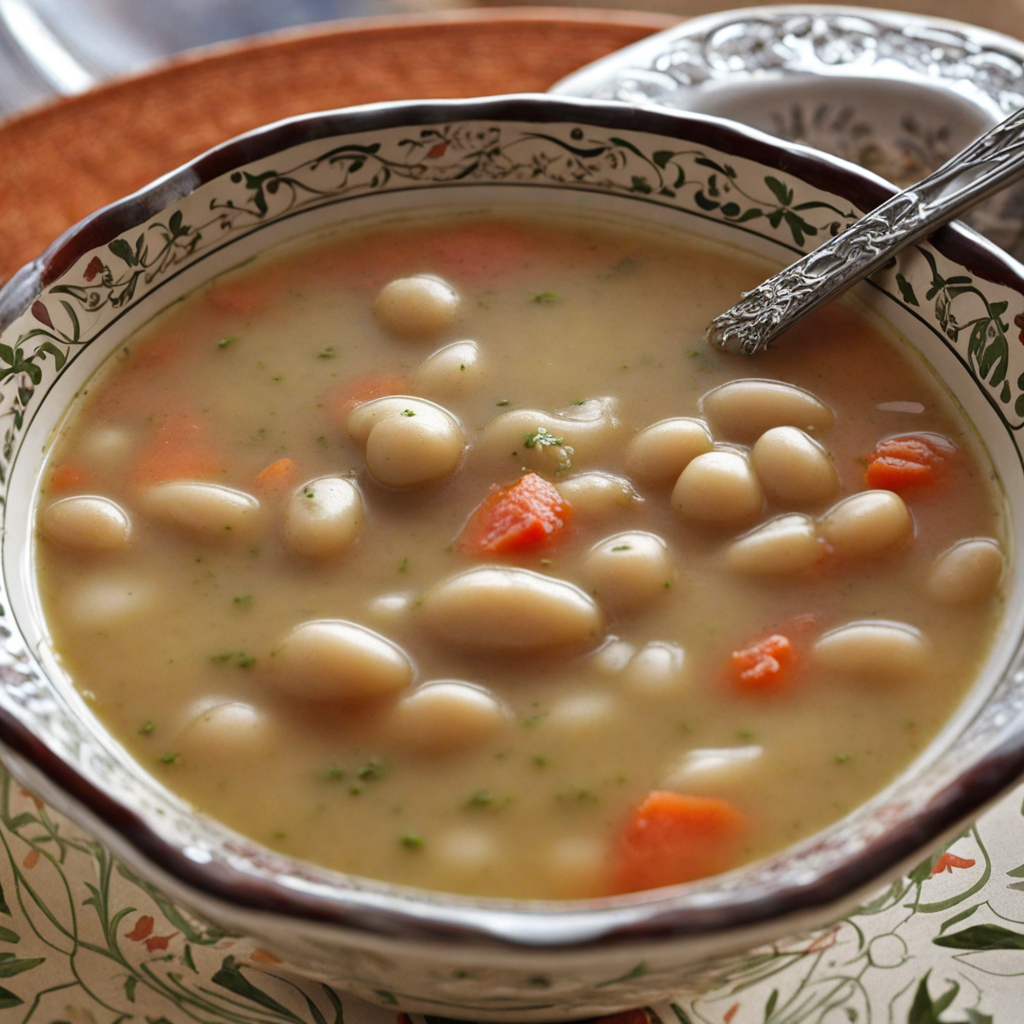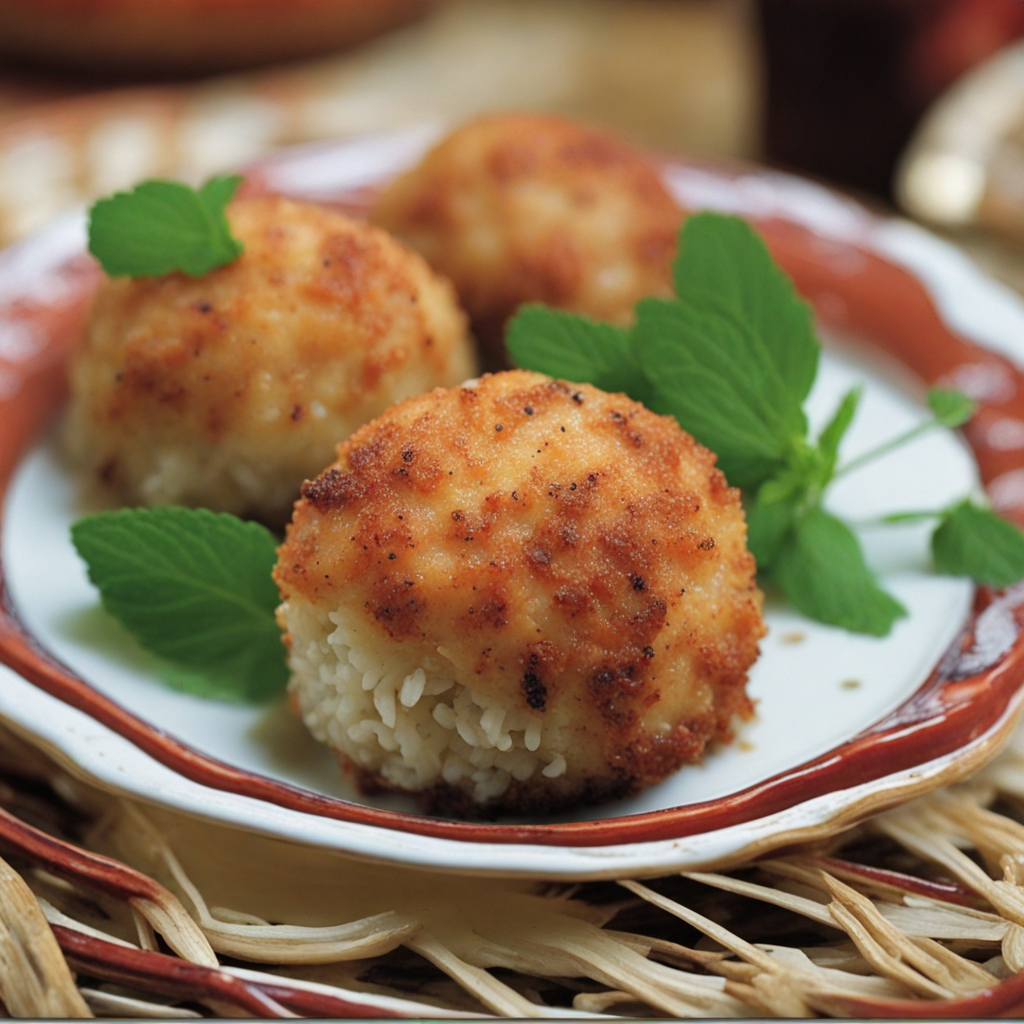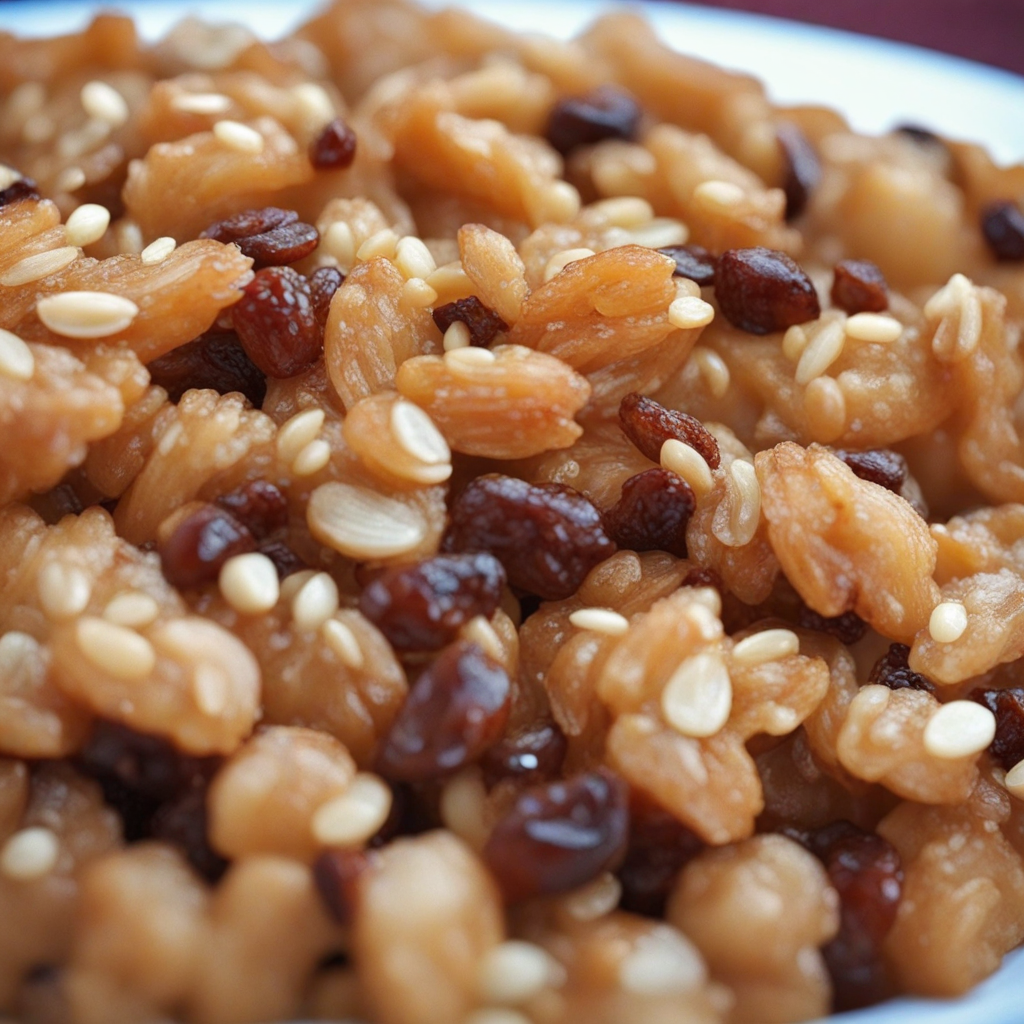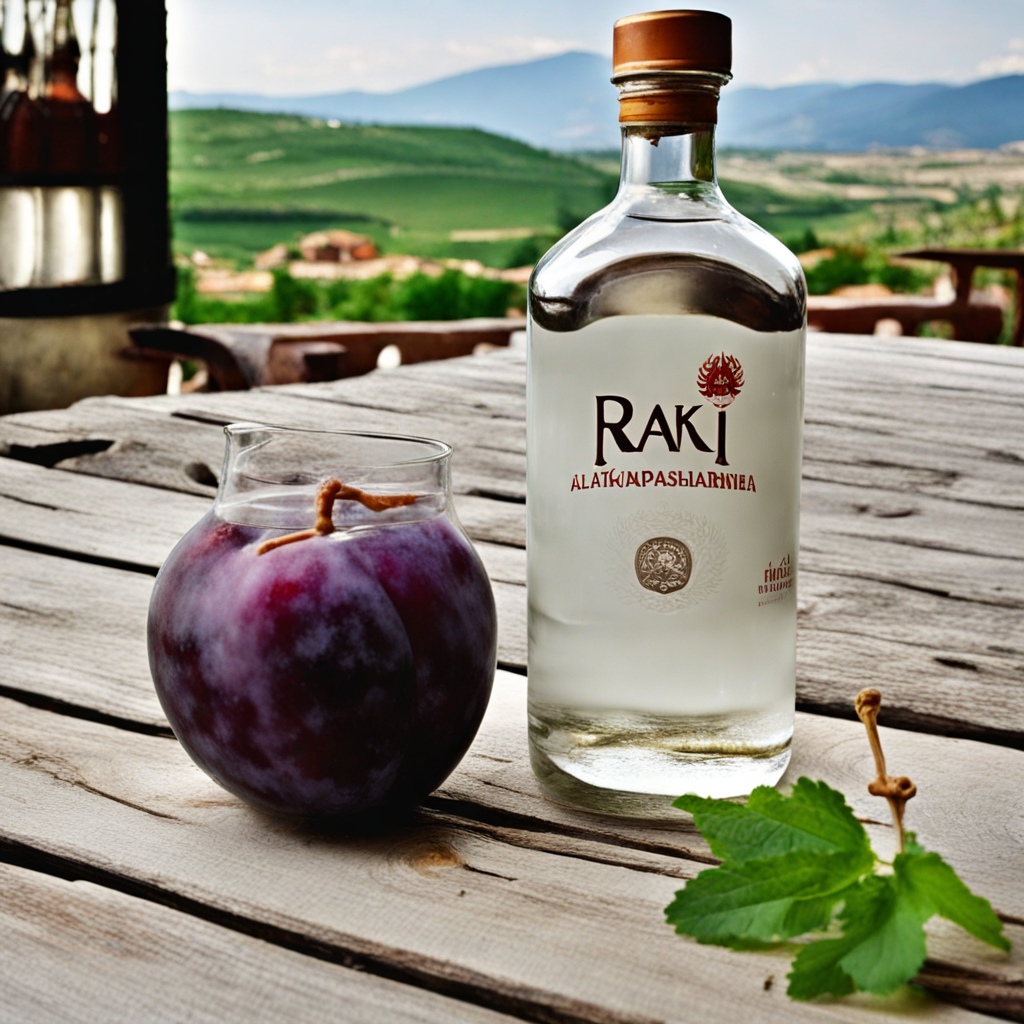Jani me Fasule
Jani me Fasule is a traditional Albanian dish that beautifully showcases the country's rich culinary heritage. This flavorful bean stew is primarily made with white beans, which are slow-cooked to achieve a tender, creamy texture. The base of the dish is enhanced with a medley of fresh vegetables, including onions, carrots, and tomatoes, creating a vibrant and hearty meal that is both satisfying and nourishing. Each ingredient is carefully selected to contribute to the overall depth of flavor, making it a perfect comfort food for any occasion. What sets Jani me Fasule apart is the unique blend of spices and herbs that elevate the dish to a new level. Commonly, it features a combination of bay leaves, parsley, and a hint of paprika, which lend a warm, aromatic quality to the stew. The cooking process allows these flavors to meld together, resulting in a rich broth that envelops the beans and vegetables. Often served with a drizzle of olive oil and a sprinkle of fresh herbs, this dish embodies the essence of Albanian home cooking, emphasizing simplicity and the use of natural ingredients. Traditionally enjoyed as a main course, Jani me Fasule is often accompanied by crusty bread, perfect for dipping and soaking up the delicious broth. It can be served hot, straight from the pot, or allowed to cool a bit, which can intensify the flavors even further. Whether you are seeking a filling meal on a chilly day or looking to explore the diverse tastes of Albanian cuisine, Jani me Fasule is a delightful dish that promises to warm both your body and soul.
How It Became This Dish
The Rich History of Jani me Fasulë: A Culinary Gem of Albania #### Origins and Ingredients Jani me Fasulë, a traditional Albanian dish, is a hearty bean stew that holds a special place in the hearts and homes of many Albanians. The name translates roughly to "Beans with Water" in English, reflecting its simple yet nourishing composition. The primary ingredient, fasulë, refers to white beans, which are typically combined with a variety of vegetables, spices, and sometimes meat for added depth. The origins of Jani me Fasulë can be traced back to the agricultural practices of the regions of Albania, particularly in the fertile plains of the country. Beans have been cultivated in the Balkans for thousands of years, with archaeological evidence suggesting that they were consumed by ancient Illyrian tribes long before Albania became a recognized nation. This legume was favored not only for its nutritional value but also for its adaptability to various growing conditions, making it a staple in the Albanian diet. Traditionally, Jani me Fasulë is prepared with ingredients that are readily available in local markets or from home gardens. In addition to beans, the dish typically features onions, garlic, tomatoes, and peppers, which harmoniously blend to create a rich, flavorful broth. Spices such as paprika, bay leaves, and sometimes a hint of vinegar or lemon juice are added, enhancing its taste profile. The dish can be served vegetarian, though meat, such as smoked pork or lamb, is often included in more elaborate versions. #### Cultural Significance Jani me Fasulë is more than just a meal; it is a cultural symbol of Albanian hospitality and communal bonding. Traditionally, it is served during family gatherings, celebrations, and religious observances, reflecting the importance of sharing food among loved ones. The dish embodies the spirit of togetherness, as it is often prepared in large quantities and enjoyed communally. In Albania, food plays an essential role in social interactions, and Jani me Fasulë epitomizes this ethos. It is a dish that transcends social classes and is enjoyed by people from all walks of life, making it a unifying force within the Albanian society. Its affordability and ease of preparation have made it a beloved comfort food, especially during colder months, when the warmth of a hearty stew brings solace. Furthermore, Jani me Fasulë is often associated with traditional Albanian folklore and customs. It is mentioned in various folk songs and stories, celebrating the themes of home, family, and the agrarian lifestyle that has characterized much of Albanian history. The act of preparing and sharing this dish is often accompanied by storytelling, where families recount tales of their ancestors, ensuring that cultural heritage is passed down through generations. #### Development Over Time As Albania has undergone various political and social transformations throughout the centuries, so too has the dish of Jani me Fasulë evolved. The Ottoman Empire's influence on the Balkans introduced new spices and cooking techniques, enriching the traditional Albanian culinary landscape. While the core ingredients of Jani me Fasulë have remained consistent, variations have developed that reflect these external influences. In urban areas, particularly in cities like Tirana and Shkodra, the dish has been adapted to cater to a more modern palate. Chefs and home cooks alike have experimented with ingredients, incorporating local specialties such as fërgesë (a mixture of peppers and cheese) or even gourmet twists, including truffle oil, to elevate the dish. This has resulted in a fusion of traditional and contemporary culinary practices, showcasing the versatility of Jani me Fasulë. Moreover, the rise of the global food movement has allowed for greater visibility of Albanian cuisine on the international stage. As more people travel to Albania or explore its culinary offerings, Jani me Fasulë has gained recognition as a representative dish of Albanian culture. Food festivals, culinary tours, and social media have contributed to its popularity beyond the borders of Albania, encouraging chefs worldwide to experiment with this hearty stew. In recent years, there has also been a renewed emphasis on sustainable and local food practices, which has led to a resurgence of interest in traditional dishes like Jani me Fasulë. The farm-to-table movement has inspired many people to seek out locally sourced ingredients, thus paying homage to the dish’s agrarian roots. As a result, many restaurants now highlight the importance of using organic beans, seasonal vegetables, and traditional cooking methods to honor the authenticity of Jani me Fasulë. #### Conclusion Jani me Fasulë represents more than just a culinary delight; it is a testament to the history, culture, and resilience of the Albanian people. Its simplicity speaks to the enduring nature of traditional food, while its adaptability showcases the dynamic evolution of cuisine in response to changing times. As Albania continues to navigate the complexities of modern life, Jani me Fasulë stands as a delicious reminder of the importance of community, heritage, and the profound connection between food and identity. In every bowl of Jani me Fasulë, there lies a story—a legacy of generations who have cultivated the land, shared their homes, and celebrated the richness of their culture. As more people discover and embrace this traditional dish, it will undoubtedly continue to thrive, ensuring that the flavors of Albania are shared and cherished for years to come.
You may like
Discover local flavors from Albania


